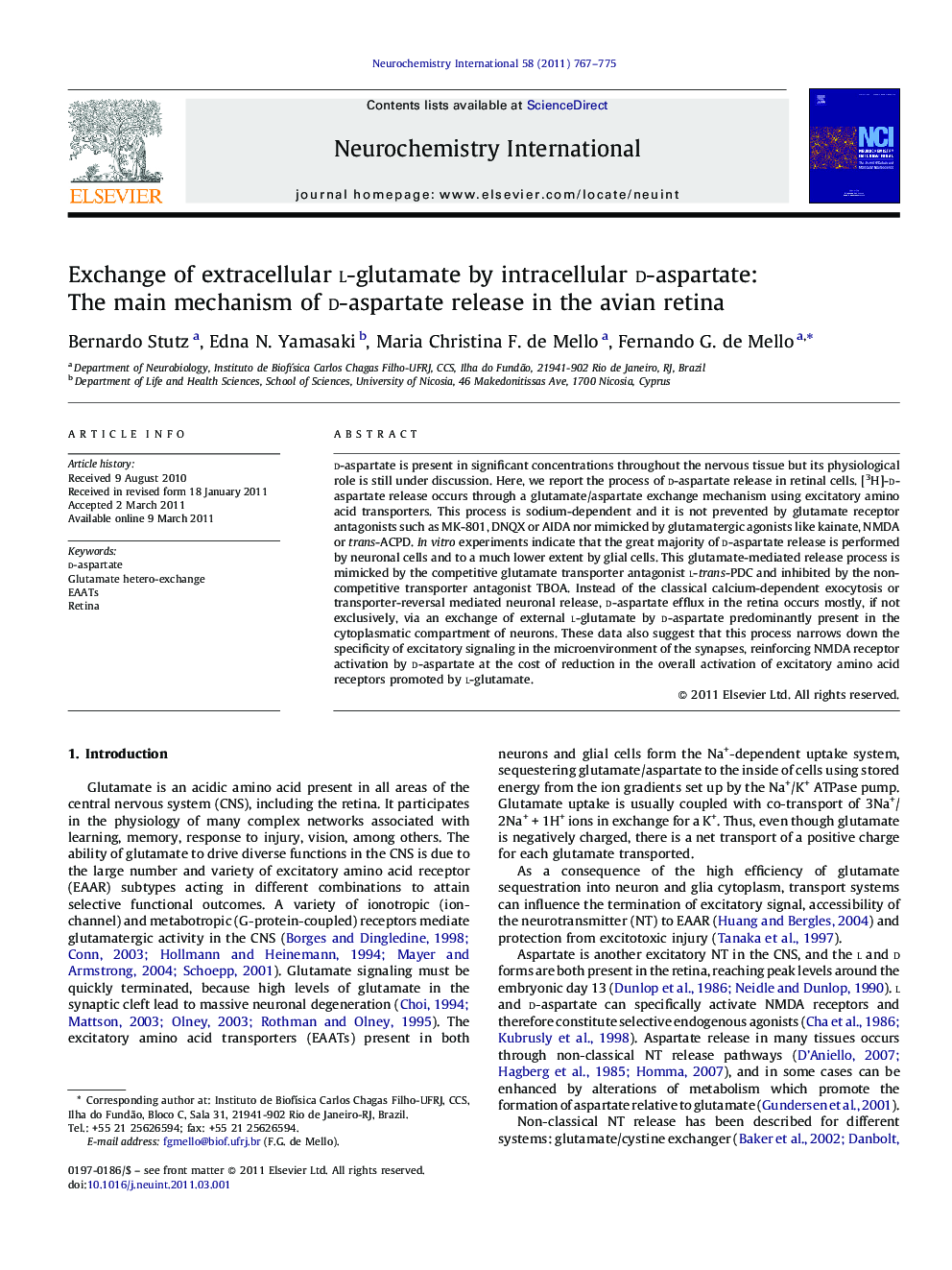| Article ID | Journal | Published Year | Pages | File Type |
|---|---|---|---|---|
| 2201090 | Neurochemistry International | 2011 | 9 Pages |
d-aspartate is present in significant concentrations throughout the nervous tissue but its physiological role is still under discussion. Here, we report the process of d-aspartate release in retinal cells. [3H]-d-aspartate release occurs through a glutamate/aspartate exchange mechanism using excitatory amino acid transporters. This process is sodium-dependent and it is not prevented by glutamate receptor antagonists such as MK-801, DNQX or AIDA nor mimicked by glutamatergic agonists like kainate, NMDA or trans-ACPD. In vitro experiments indicate that the great majority of d-aspartate release is performed by neuronal cells and to a much lower extent by glial cells. This glutamate-mediated release process is mimicked by the competitive glutamate transporter antagonist l-trans-PDC and inhibited by the non-competitive transporter antagonist TBOA. Instead of the classical calcium-dependent exocytosis or transporter-reversal mediated neuronal release, d-aspartate efflux in the retina occurs mostly, if not exclusively, via an exchange of external l-glutamate by d-aspartate predominantly present in the cytoplasmatic compartment of neurons. These data also suggest that this process narrows down the specificity of excitatory signaling in the microenvironment of the synapses, reinforcing NMDA receptor activation by d-aspartate at the cost of reduction in the overall activation of excitatory amino acid receptors promoted by l-glutamate.
► Glutamate promotes a substantial release of d-aspartate from retina cells. ► This effect is not mimicked by glutamate receptor agonists. ► Glutamate receptor antagonists do not prevent the effect of glutamate. ► Low temperature or absence of Na+ ions, prevent d-aspartate release by glutamate. ► Therefore, d-aspartate release in the retina occurs via a transporter mediated exchange of glutamate by d-aspartate.
